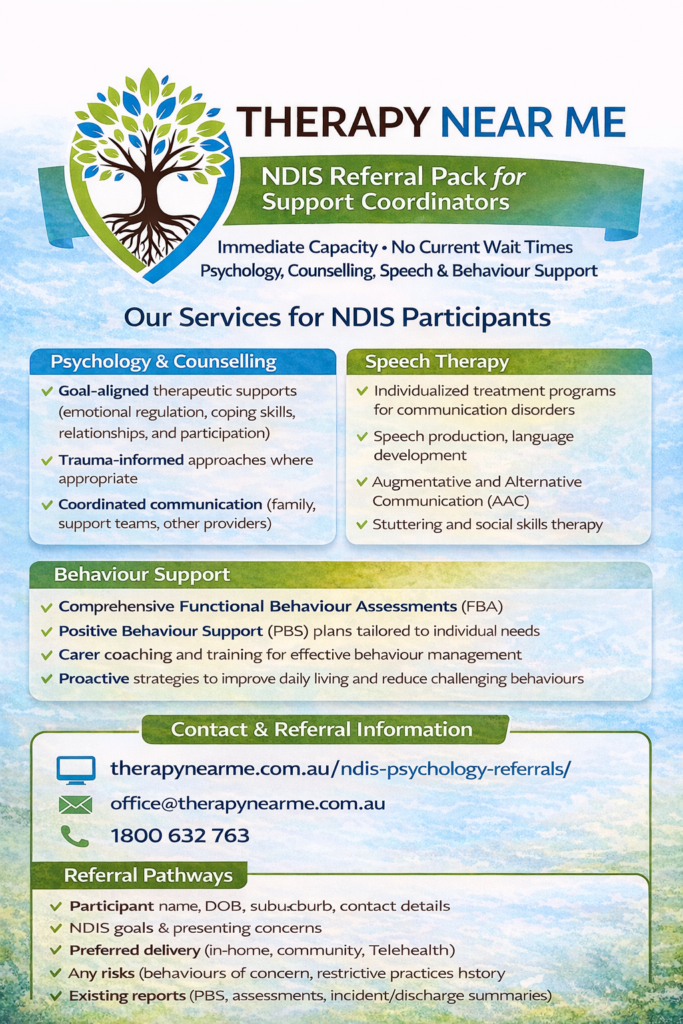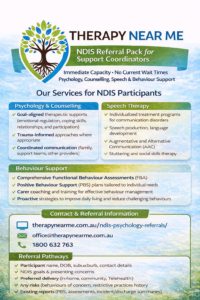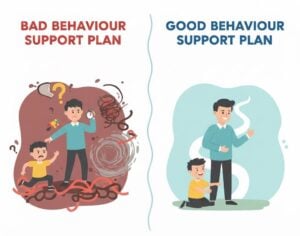Mindfulness has emerged as a significant practice in promoting mental health and overall well-being. Originating from ancient meditation traditions, mindfulness involves paying deliberate attention to the present moment with a non-judgemental attitude (Kabat-Zinn 1994). In Australia, mindfulness has gained popularity as an effective tool for stress reduction, improving mental health, and enhancing quality of life (Australian Psychological Society 2012). This article explores the concept of mindfulness, its benefits, and practical ways to incorporate it into daily life, supported by scientific research.
Keywords: Mindfulness, Mindfulness meditation, Benefits of mindfulness, Mindfulness practices, Mental health, Stress reduction, Present-moment awareness, Mindfulness in Australia, Mindfulness-based interventions, How to practise mindfulness
What is Mindfulness?
Mindfulness is the practice of consciously bringing one’s attention to the present experience without judgment (Baer 2003). It involves observing thoughts, feelings, and sensations as they arise, allowing individuals to become more aware of their inner and outer worlds. This heightened awareness fosters a greater sense of clarity and acceptance (Brown & Ryan 2003).
History and Origins of Mindfulness
Rooted in Buddhist meditation practices, mindfulness was introduced to Western psychology by Jon Kabat-Zinn in the late 20th century. He developed the Mindfulness-Based Stress Reduction (MBSR) program, integrating mindfulness meditation with medical practice to address stress, pain, and illness (Kabat-Zinn 1982). Since then, mindfulness has been adapted into various therapeutic interventions, including Mindfulness-Based Cognitive Therapy (MBCT) (Segal, Williams & Teasdale 2002).
Benefits of Mindfulness
Mental Health Benefits
Mindfulness has been shown to reduce symptoms of anxiety, depression, and stress. By cultivating present-moment awareness, individuals can interrupt habitual negative thought patterns (Hofmann et al. 2010). A meta-analysis revealed that mindfulness-based therapy is effective in treating anxiety and mood disorders (Khoury et al. 2013).
Physical Health Benefits
Practising mindfulness can improve physical health by enhancing immune function, reducing blood pressure, and alleviating chronic pain (Davidson et al. 2003). Mindfulness interventions have also been associated with healthier lifestyle choices, such as improved diet and increased physical activity (Roberts & Danoff-Burg 2010).
Cognitive Benefits
Mindfulness enhances cognitive functions, including attention, memory, and executive functioning (Chiesa, Calati & Serretti 2011). Regular practice can lead to structural changes in the brain, increasing grey matter density in areas associated with learning and memory (Hölzel et al. 2011).
Mindfulness Practices
Mindfulness Meditation
Mindfulness meditation involves focusing on the breath or bodily sensations, observing thoughts and emotions without attachment (Kabat-Zinn 1994). This practice helps develop a greater capacity for emotional regulation and stress management.
Mindfulness in Everyday Life
Incorporating mindfulness into daily activities—such as mindful eating, walking, or listening—can enhance overall awareness and appreciation of the present moment (Baer 2003). Simple practices like paying full attention to a task or noticing sensory experiences contribute to a mindful lifestyle.
Mindfulness in Australia
Prevalence and Acceptance
Mindfulness has gained widespread acceptance in Australia, with various programs implemented in schools, workplaces, and healthcare settings (Australian Psychological Society 2012). The integration of mindfulness into psychological practice reflects its growing importance in promoting mental health.
Applications in Healthcare
Australian healthcare professionals utilise mindfulness-based interventions to treat conditions like depression, anxiety, and chronic pain (Gotink et al. 2015). Programs like MBSR and MBCT are offered in hospitals and clinics, reflecting a commitment to holistic care.
Scientific Evidence Supporting Mindfulness
Research supports the efficacy of mindfulness in improving mental and physical health outcomes. Studies demonstrate significant reductions in stress and improvements in quality of life among participants of mindfulness programs (Grossman et al. 2004). Neuroimaging research shows that mindfulness practice can lead to changes in brain structure and function, enhancing emotional processing and regulation (Hölzel et al. 2011).
How to Practise Mindfulness
Start with Short Sessions
Begin with short meditation sessions of 5–10 minutes, gradually increasing duration as comfort with the practice grows (Praissman 2008).
Focus on the Breath
Use the breath as an anchor to maintain focus. When the mind wanders, gently bring attention back to the breath (Kabat-Zinn 1994).
Adopt a Non-Judgemental Attitude
Observe thoughts and feelings without judgement or attachment. Acknowledge their presence and let them pass (Baer 2003).
Integrate Mindfulness into Daily Activities
Incorporate mindfulness into routine tasks by fully engaging in the experience, whether it’s eating, walking, or conversing (Brown & Ryan 2003).
Seek Guidance
Consider joining a mindfulness group or using guided meditation resources to support the practice (Segal, Williams & Teasdale 2002).
Conclusion
Mindfulness offers a powerful means to enhance mental and physical well-being through intentional, present-moment awareness. Supported by scientific research, mindfulness practices can reduce stress, improve mental health, and foster a deeper connection with oneself and the surrounding world. As mindfulness continues to gain traction in Australia, individuals are encouraged to explore and integrate these practices into their daily lives for improved health and quality of life.
References
- Australian Psychological Society 2012, Mindfulness: An information paper, APS, Melbourne.
- Baer, RA 2003, ‘Mindfulness training as a clinical intervention: A conceptual and empirical review’, Clinical Psychology: Science and Practice, vol. 10, no. 2, pp. 125–143.
- Brown, KW & Ryan, RM 2003, ‘The benefits of being present: Mindfulness and its role in psychological well-being’, Journal of Personality and Social Psychology, vol. 84, no. 4, pp. 822–848.
- Chiesa, A, Calati, R & Serretti, A 2011, ‘Does mindfulness training improve cognitive abilities? A systematic review of neuropsychological findings’, Clinical Psychology Review, vol. 31, no. 3, pp. 449–464.
- Davidson, RJ et al. 2003, ‘Alterations in brain and immune function produced by mindfulness meditation’, Psychosomatic Medicine, vol. 65, no. 4, pp. 564–570.
- Gotink, RA et al. 2015, ‘Standardised mindfulness-based interventions in healthcare: an overview of systematic reviews and meta-analyses of RCTs’, PLOS One, vol. 10, no. 4, e0124344.
- Grossman, P, Niemann, L, Schmidt, S & Walach, H 2004, ‘Mindfulness-based stress reduction and health benefits: A meta-analysis’, Journal of Psychosomatic Research, vol. 57, no. 1, pp. 35–43.
- Hofmann, SG, Sawyer, AT, Witt, AA & Oh, D 2010, ‘The effect of mindfulness-based therapy on anxiety and depression: A meta-analytic review’, Journal of Consulting and Clinical Psychology, vol. 78, no. 2, pp. 169–183.
- Hölzel, BK et al. 2011, ‘Mindfulness practice leads to increases in regional brain gray matter density’, Psychiatry Research: Neuroimaging, vol. 191, no. 1, pp. 36–43.
- Kabat-Zinn, J 1982, ‘An outpatient program in behavioral medicine for chronic pain patients based on the practice of mindfulness meditation: Theoretical considerations and preliminary results’, General Hospital Psychiatry, vol. 4, no. 1, pp. 33–47.
- Kabat-Zinn, J 1994, Wherever You Go, There You Are: Mindfulness Meditation in Everyday Life, Hyperion, New York.
- Khoury, B et al. 2013, ‘Mindfulness-based therapy: A comprehensive meta-analysis’, Clinical Psychology Review, vol. 33, no. 6, pp. 763–771.
- Praissman, S 2008, ‘Mindfulness-based stress reduction: A literature review and clinician’s guide’, Journal of the American Academy of Nurse Practitioners, vol. 20, no. 4, pp. 212–216.
- Roberts, KC & Danoff-Burg, S 2010, ‘Mindfulness and health behaviors: Is paying attention good for you?’, Journal of American College Health, vol. 59, no. 3, pp. 165–173.
- Segal, ZV, Williams, JMG & Teasdale, JD 2002, Mindfulness-Based Cognitive Therapy for Depression: A New Approach to Preventing Relapse, Guilford Press, New York.
How to get in touch
If you or your NDIS participant need immediate mental healthcare assistance, feel free to get in contact with us on 1800 NEAR ME – admin@therapynearme.com.au.








1 thought on “Mindfulness: Well-being Through Present-Moment Awareness”
Amazing Content